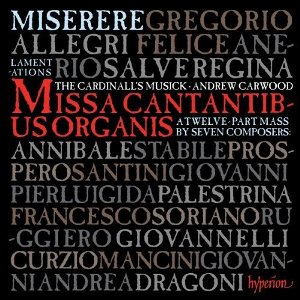A Performance and Reception History of On parole/A paris/Frese nouvel
The Montpellier Codex
The Final Fascicle. Contents, Contexts, Chronologies
Edited by Catherine A. Bradley, Karen Desmond
Studies in Medieval and Renaissance Music, French Studies, Medieval Literature, Music
On parole/A paris/Frese nouvel
Edward Breen
Fascicle 8’s motet On parole/A paris/Frese nouvele (Mo 8,319, fols. 368v—369v) is an intriguing polytextual work with an equally intriguing performance history. It has caught the imagination of many musicians who have explored the various performance possibilities suggested by the text.
The written personal communication of Thurston Dart offers a unique opportunity to understand how his performance of this particular motet was planned and executed in the late 1960s. It also suggests ways in which his opinion influenced some of the first performances to be recorded. ‘Make the music sound robust now and again’ was Dart’s advice to Michael Morrow and his ensemble Musica Reservata. Little did Dart know just quite how literally these young musicians would take him at his word. For Musica Reservata, On parole/A paris/Frese nouvele required an almost military approach to rhythmic drive resulting in a highly organised market-traders’ cacophony, whereas in Dart’s own conception this street scene unfolded across the newly available stereophonic soundscape of late 60s LP technology. As Emma Dillon explains, the attraction of On parole/A paris/Frese nouvele is that it ‘offers us a rare instance where the city itself is the topic of the motet’. [1] Through this urban prism Dart (re)constructed a vision of medieval Paris which made sense in his modern world and subsequent performances reacted to his historical imagination.
This paper explores the first four recordings of this evocative motet, with particular emphasis on the circumstances surrounding Dart’s much-delayed album, and probes the musicological climate behind each. With reference to the influential work of Yvonne Rokseth, it asks how much these performances say about the changing twentieth century sense of medieval and what they suggest about the changing musicological approaches to the famous Montpellier Codex itself.
[...]
[1] Emma Dillon, The Sense of Sound: Musical Meaning in France, 1260-1330 (Oxford, 2012), 87.
Edward Breen
Fascicle 8’s motet On parole/A paris/Frese nouvele (Mo 8,319, fols. 368v—369v) is an intriguing polytextual work with an equally intriguing performance history. It has caught the imagination of many musicians who have explored the various performance possibilities suggested by the text.
The written personal communication of Thurston Dart offers a unique opportunity to understand how his performance of this particular motet was planned and executed in the late 1960s. It also suggests ways in which his opinion influenced some of the first performances to be recorded. ‘Make the music sound robust now and again’ was Dart’s advice to Michael Morrow and his ensemble Musica Reservata. Little did Dart know just quite how literally these young musicians would take him at his word. For Musica Reservata, On parole/A paris/Frese nouvele required an almost military approach to rhythmic drive resulting in a highly organised market-traders’ cacophony, whereas in Dart’s own conception this street scene unfolded across the newly available stereophonic soundscape of late 60s LP technology. As Emma Dillon explains, the attraction of On parole/A paris/Frese nouvele is that it ‘offers us a rare instance where the city itself is the topic of the motet’. [1] Through this urban prism Dart (re)constructed a vision of medieval Paris which made sense in his modern world and subsequent performances reacted to his historical imagination.
This paper explores the first four recordings of this evocative motet, with particular emphasis on the circumstances surrounding Dart’s much-delayed album, and probes the musicological climate behind each. With reference to the influential work of Yvonne Rokseth, it asks how much these performances say about the changing twentieth century sense of medieval and what they suggest about the changing musicological approaches to the famous Montpellier Codex itself.
[...]
[1] Emma Dillon, The Sense of Sound: Musical Meaning in France, 1260-1330 (Oxford, 2012), 87.



Comments
Post a Comment